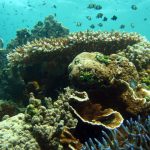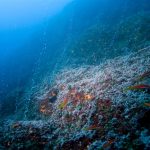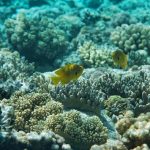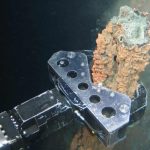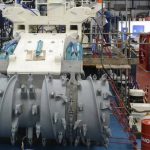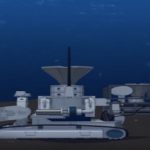Dear Ms. Abbott,
We are writing in response to your show on Sunday November 17 to register our serious disappointment and concern over the reporting bias and errors, and to correct some of the most egregious misconceptions purveyed. The production departed from the usual high standards of 60 Minutes, completely lacked balance, and could even be mistaken for a DeepGreen promotional piece.
There without doubt is a need for a more strategic global approach to mineral resource production, extraction, use and re-use. Minerals are key to addressing the climate crisis and human development priorities for the 21st century. But deep seabed mining is an irresponsible approach given current scientific knowledge, the importance of a healthy ocean, and the current state of the marine environment. Here we offer a synthesis of some of the most important points that we would have expected your program to pick up on.
1. Deep-sea mining is not ‘harvesting’ and miners are not ‘environmentalists’

In your segment, DeepGreen representative Gerrard Baron claims that DeepGreen’s operation is not mining, merely ‘harvesting’. This is a clear public relations ploy meant to mislead the public which went unchallenged. Firstly, mining is in no sense ‘harvesting’, a term which applies to a crop, as in farming. Manganese nodules are not renewable: they are minerals, occurring as the result of millions of years of accretion. Deep-sea mining is mineral extraction in every sense that comes with a plethora of harmful environmental impacts, whether or not there is drilling or digging involved.
Of course deep-sea mining differs from terrestrial mining, due to the great physical differences in the two types of environments. According to scientists, the mining of manganese nodules targeted by DeepGreen and other miners is likely to cause widespread destruction of marine life in and on the seabed. A single 30-year mining operation in the Clarion Clipperton Zone (CCZ) would directly impact approximately 3,000-3,500 square miles (8,000-9,000 km2) of seabed, though estimates vary. Sediment plumes generated by the mining would likely impact deep-sea species and ecosystems well beyond the actual mining sites along the seafloor and in the water column, including through the emission of noise and light and the discharge of sediment, residual ore and wastewater from the mining ships at sea. Recent studies have concluded that the CCZ is an area of much higher biodiversity than previously thought and that the nodules themselves provide critical ‘substrate’ for many species, including important habitat forming species in the region.
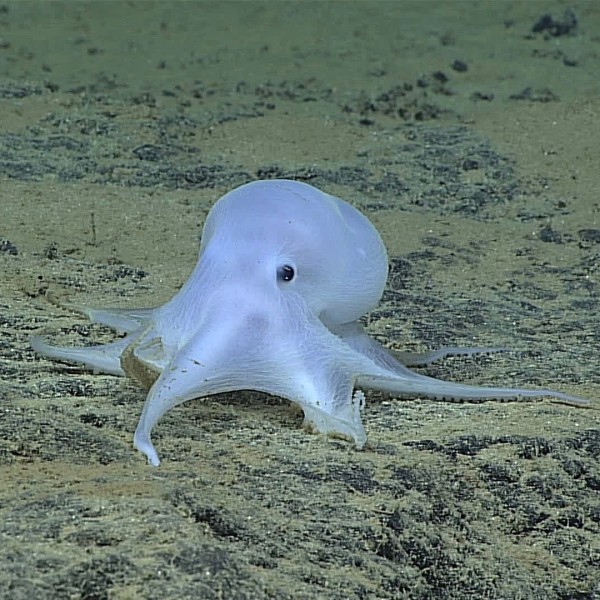
An article published in Nature Geoscience in June 2017 and another in Frontiers in Marine Science in April 2018 argue that for these and other reasons biodiversity loss will be inevitable if deep-sea mining is permitted to occur and that most of this loss is likely to be permanent on human timescales given the very slow rates of recovery of deep-sea ecosystems. The deep ocean is already and increasingly facing multiple environmental stressors from pollutants, plastics, and climate change and related impacts such as acidification, warming, deoxygenation and reduced supply of nutrients from surface waters. We know very little about the deep sea, and new species are still being regularly discovered by deep-sea expeditions – species that could provide important ecosystem services that we do not yet understand, or even hold the key to medical or technological breakthroughs. Knowingly destroying an ecosystem we are only just beginning to understand cannot conceivably be called ‘environmentalism’, regardless of how it is spun.
Your segment mentions the Casper octopus. These animals lay their eggs on sponges which can only be found on the nodules targeted by companies like DeepGreen. They spend several years tending to these eggs, of which they lay very few, not even leaving to feed until the eggs successfully hatch, at which point the octopus dies, its mission completed. What will happen to the Casper octopus if deep-sea mining companies are permitted to destroy their nurseries?
2. The health of the deep-sea environment is critically important

The deep sea is not an ‘alien landscape’, as quoted by your narrator. Rather, it is the planet’s largest ecosystem, home to the greatest diversity of species and ecosystems on Earth, and essential to the proper functioning of our biosphere. Half of our planet’s oxygen is provided by the ocean.
Deep-sea processes are an important part of the ocean’s carbon storage system, and deep-sea sediments are significant carbon sinks. Many of these processes are still not fully understood, but disrupting them comes with considerable risk. Introducing a new extractive industry in the name of renewable energy could disrupt the ability of the deep sea to sequester and store carbon, or result in the release of stored carbon into the atmosphere as a side effect, further contributing to the climate crisis.
3. Metals found in the deep sea are not essential for a renewable energy future
DeepGreen claims that “the world has a problem” because “it’s getting harder to obtain the metals we need for our future – to build the electric cars, wind turbines, smartphones, supercomputers and other future technologies that will make us less reliant on fossil fuels” and that deep seabed mining is the answer to the supply problem. A 2016 report by the Institute for Sustainable Futures – ‘Renewable Energy and Deep-Sea Mining: Supply, Demand and Scenarios’ – refutes this claim. Having reviewed global supplies and projected demand for metals currently considered essential to renewable energy technology, the report concludes that even under the most ambitious scenario (a 100% renewable energy economy globally by 2050) it is not necessary to mine the deep sea.
It is simply not arguable that there are insufficient minerals on land to supply renewable energy. The proposition by DeepGreen is not that it is necessary, but rather preferable, to mine minerals from the deep sea. This argument is made in disregard of the long term environmental damage that will be caused to the ocean and sea floor, and in disregard of the scientific uncertainties due to lack of knowledge of the deep sea and enormous uncertainties around the technologies that will be used.
4. There is a growing call around the world for a moratorium on deep-sea mining
For all these reasons, many observers, from the Special Envoy of the UN Secretary-General for the Ocean to the European Parliament and the Long Distance Fisheries Advisory Council to the European Union, are calling for a moratorium or pause on the rush to mine the deep seabed. Several point to the Decade for Ocean Science (2021-2030) as an opportunity to better understand what we stand to lose in the biodiversity and ecosystem function of the deep sea, before we destroy large areas of it for good.
Civil society is similarly active (despite being completely omitted from your feature). The Deep Sea Conservation Coalition (DSCC), founded in 2004, is a coalition of over 80 organizations worldwide working to protect deep-sea and open ocean ecosystems. Since 2014, we have worked extensively on the issue of deep-sea mining both at the ISA and multiple other forums beyond. In August 2019 the Coalition released an updated position statement calling for a moratorium unless and until a number of key conditions are met.
5. The US is not ‘being left out’
Your program’s central argument, that the US is being ‘left out’, ignores the fact that one of the largest defense contractors in the US has found a way around the US decision not to ratify the Law of the Sea Convention. The largest private company that has a contract with the International Seabed Authority (ISA) to explore for deep-sea minerals is US firm Lockheed Martin. Through its subsidiary, UK Seabed Resources which is sponsored by the United Kingdom, Lockheed has successfully obtained permits from the ISA to explore for nodules in the eastern Pacific Ocean, in an area totaling over 100,000 square miles of seabed (265,000 km²) – roughly the size of the state of Colorado. Five minutes of research on your part would have disclosed this fact.
In conclusion:
Numerous bodies are calling for transformational change in our use of the Earth’s resources to reverse environmentally destructive and wasteful production and consumption patterns. Instead, deep-sea mining would open a whole new frontier of environmental degradation and potential extinctions across areas of the planet that are poorly studied and that have remained relatively untouched by direct human impact. Your researchers could and should have done far more to assess and present the entire story: a story that is replete in scientific literature, media commentary and social media, as a simple Google search for ‘deep sea mining and environment’ will show.
We invite 60 Minutes to contact us to arrange for a follow-up story. We will also put you in touch with other scientists, concerned governments, researchers and civil society organizations working on this issue.
Sincerely,
Matthew Gianni
Co-Founder, Political and Policy Advisor
Deep Sea Conservation Coalition
Sian Owen
Global Coordinator
Deep Sea Conservation Coalition
Download and view the PDF version



